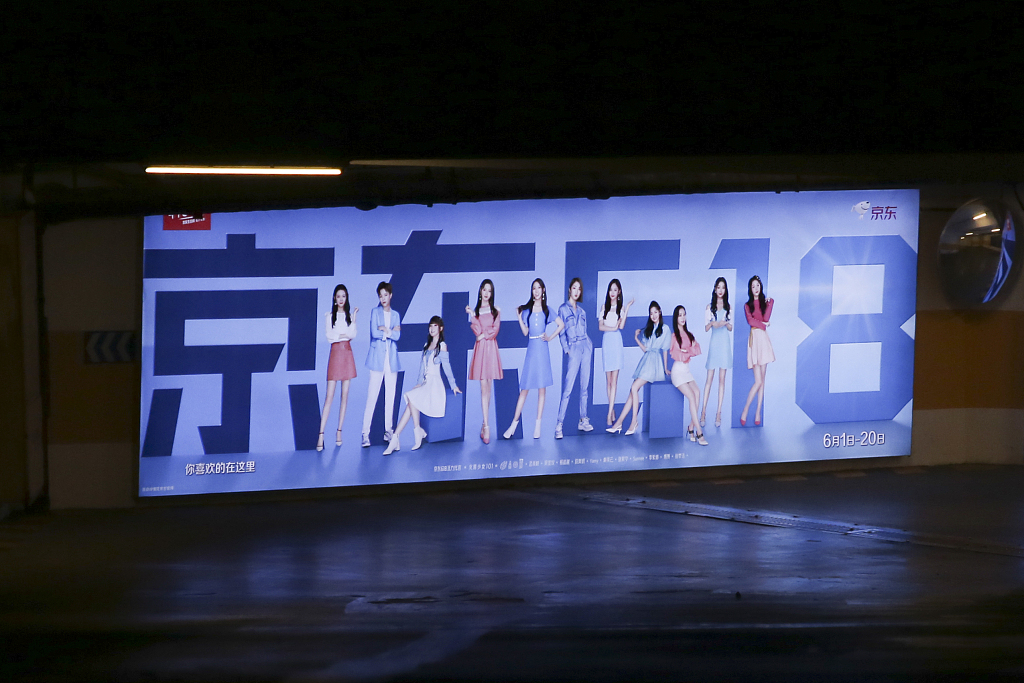E-commerce giants eye rich pickings in lower-tier cities


China's outside-the-box thinking has rewritten the book on e-commerce in a strikingly short amount of time. Just years after Nov 11 made its entry to the world's retail calendar, another once obscure date is shaping up to make a mark: June 18.
As e-commerce companies from JD to Alibaba Group Holding Ltd are fighting over sales, they are also seeking to unlock the spending power of people from smaller cities and towns.
JD saw sales of air conditioners top 100 million yuan ($14.5 million) just 15 seconds after the clock struck midnight on June 1, when the 18-day promotional event officially kicked off, according to a company news release.
Among them, sales in Northeast China - a relatively less affluent region encompassing Liaoning, Jilin and Heilongjiang provinces - jumped 5.5 times compared with a year ago, recording the fastest growth.
Retailer Suning.com Co Ltd is banking on its offline presence to promote this mid-year festival, especially in lower-tier cities. According to Suning President Hou Enlong, the company will continue to leverage its stores across the country to achieve its pledged "onehour delivery" to customers' doorsteps, a move that aims to further penetrate into neighborhoods.
Alibaba's multiple sites are attracting customers in lower-tier cities with special initiatives such as Flash Sales and Daily Deals. For instance, group-buying unit Juhuasuan will organize dozens of 618-themed group-selling campaigns featuring must-buy items recommended by brands.
According to company data, 80 percent of the transactions for branded goods through the platform were from new customers since 2018, and nearly half were from smaller cities and towns.
Also through the Taobao app, customers can access special offerings directly from manufacturers and purchase products at a lower price. Equipped with insights from consumer preferences and behavior, manufacturers are able to adjust their production processes on a real time basis to meet consumer demands, the company said.
The number of people living in smaller cities and rural areas accounts for nearly 70 percent of China's total population, according to market research firm Analysys. Tmall's figures also show that over half of the sales generated on its Luxury Pavilion comes from customers outside China's first and second-tier cities.
"Consumers in China's less-developed regions are becoming increasingly sophisticated shoppers who are looking for lifestyle upgrades. This increased consumption potential could mean bright prospects for our merchants," said Jiang Fan, president of Alibaba's Tmall and Taobao.
But overall such trends will inevitably squeeze profit margins, as average spending per capita from these cities is normally lower than those in cities such as Shanghai and Beijing, said Cao Lei, director of the China E-Commerce Research Center.
"That's why e-commerce platforms are powering a hybrid growth engine: the lower-price end on some portfolios and the higher-value end (on others)," Cao noted.
On JD, sales of TV sets with OLED screens jumped 2.7 times in the first trading hour of June 1. Over three-quarters of the orders were for TVs supported by artificial intelligence technologies, indicating a steady pursuit for higher-end quality products, he said.
Over at Tmall, about 1.5 million new products will debut on the platform, with many developed by brands on an accelerated cycle for the occasion. For instance, Mondelez International, the maker of Oreo cookies, has rolled out six Chinese-only flavors ahead of the June 18 event.
With packaging patterns featuring the Imperial Palace, some 760,000 limited-edition biscuits in different volumes were sold on their launch day via Tmall.
"Our collaboration shows our determination to talk to local customers using their language. It is essential that we place them at the center of our business decisionmaking," said Joost Vlaanderen, managing director of Mondelez China.




































